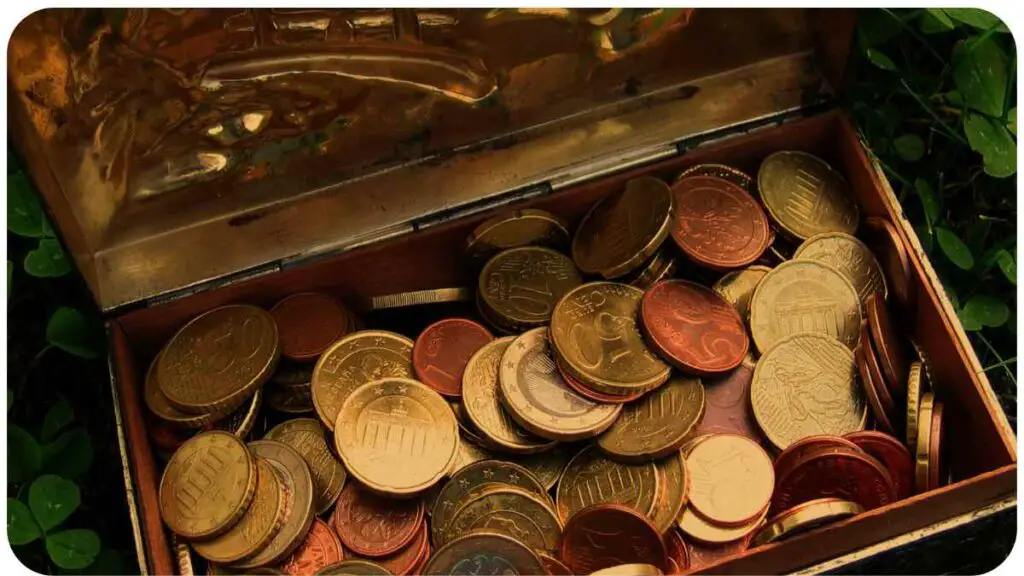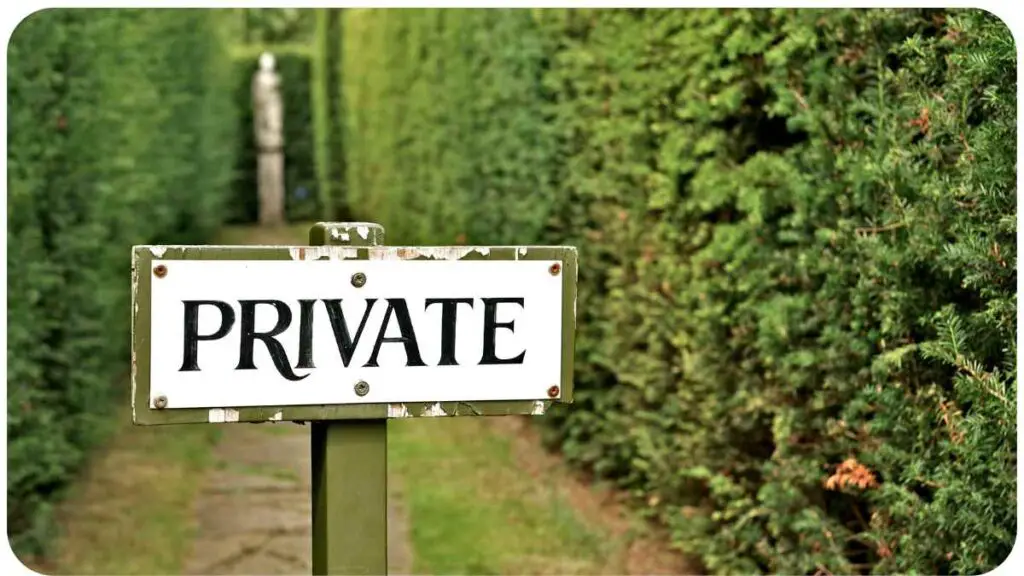Welcome to “Navigating Legal Issues in Treasure Hunting: A Comprehensive Guide.” This article aims to provide valuable insights and practical tips for treasure hunters to navigate the complex legal landscape surrounding their exciting endeavors.
Drawing from my own experience, expertise, and encounters as a treasure hunter and legal professional in this field, I will shed light on various legal aspects that treasure hunters must consider.
It is vital to approach treasure hunting with a comprehensive understanding of the legal framework, ensuring compliance with regulations while enjoying the thrill of the hunt.
| Takeaways |
|---|
| Responsible metal detecting is important for preserving cultural heritage. |
| Obtaining permissions and respecting land ownership is crucial in treasure hunting. |
| Minimizing disturbance to the environment is imperative while exploring. |
| Adhering to international regulations and import/export requirements ensures ethical practices. |
| Continuous learning and preservation efforts contribute to a sustainable treasure hunting experience. |
Understanding the Legal Framework
Overview of Treasure Hunting Laws
Before embarking on any treasure hunting venture, it is crucial to familiarize oneself with the legal framework governing such activities. Treasure hunting laws may vary across jurisdictions, so research the specific laws applicable to your region or country. Understanding these laws will help you avoid legal pitfalls and approach your activities with confidence.
Table: Key Laws Governing Treasure Hunting
| Country/Region | Key Treasure Hunting Laws |
| United States | Archaeological Resources Protection Act (ARPA) |
| United Kingdom | Treasure Act 1996 |
| Australia | Commonwealth Historic Shipwrecks Act 1976 |
| Canada | Cultural Property Export and Import Act |
| European Union | Directive on the Return of Cultural Objects |
| … | … |
What Qualifies as a Treasure?

Different jurisdictions have varying definitions of what qualifies as treasure or significant historical artifacts. Familiarize yourself with these definitions to ensure compliance with relevant regulations. It is important to note that these definitions often encompass more than just valuable items and can also pertain to items of historical, cultural, or archaeological significance.
Exploring the vast world of treasure hunting, it’s essential for enthusiasts to understand the moral backbone of their pursuits. By delving into the article on Treasure Hunting Ethics: What You Need to Know, readers can gain insights into the ethical considerations and implications of their hunts.
Table: Definitions of Treasure Across Jurisdictions
| Jurisdiction | Definition of Treasure |
| United States | Objects at least 100 years old, associated with a historical event |
| United Kingdom | Objects made of precious metal, more than 300 years old |
| Australia | Shipwreck artifacts, more than 75 years old |
| Canada | Objects of artistic or historical significance |
| European Union | Cultural objects of importance for national heritage |
| … | … |
Permit and License Requirements
As a responsible treasure hunter, it is essential to understand the permit and license requirements associated with your activities. These requirements ensure that you operate within the legal boundaries and help protect cultural heritage and archaeological sites.
Types of Permits and Licenses
Depending on the nature of your treasure hunting activities, you may need to obtain specific permits or licenses. Here are some common ones you may encounter:
Table: Types of Permits and Licenses
| Permit/License | Description |
| Archaeological Permit | Required for excavating or surveying archaeological sites |
| Metal Detecting Permit | Necessary for using metal detectors on certain lands |
| Salvage Permit | Required for recovering artifacts from shipwrecks |
| Export License | Needed for legally exporting cultural or historical items |
| … | … |
Understanding which permits or licenses are relevant to your activities is crucial. Research the specific requirements in your jurisdiction and collaborate with local authorities to ensure compliance.
Before diving deep into the nuances of treasure hunting, every enthusiast must have a foundational knowledge. The How to Start Treasure Hunting: A Beginner’s Guide offers newcomers a comprehensive walkthrough, ensuring a smooth and rewarding beginning in this adventurous endeavor.
Eligibility and Application Process
The eligibility criteria and application process for permits and licenses can vary from region to region. Factors such as proof of expertise, adherence to ethical guidelines, and financial considerations may come into play. It is essential to thoroughly research the requirements and prepare all necessary documentation before applying.
It is also helpful to seek guidance from professionals or organizations specializing in cultural heritage and archaeology. They can provide valuable insights based on their own experiences and facilitate the application process.
Remember, obtaining the required permits and licenses not only ensures legal compliance but also demonstrates your commitment to preserving our shared history and cultural heritage.
Land Ownership and Permissions
When engaging in treasure hunting activities, it is important to understand the implications of land ownership and obtain adequate permissions to access and search specific areas. Different types of land have varying regulations and requirements.
Public Lands
Public lands, such as national parks, state parks, and public beaches, may have restrictions on treasure hunting activities. It is essential to familiarize yourself with the rules and regulations governing these areas. Some public lands may require permits or have designated areas where treasure hunting is allowed.
Table: Public Lands and Treasure Hunting Regulations
| Public Land | Regulations |
| National Parks | Restricted or prohibited, check with park authorities |
| State Parks | Permitted in designated areas, obtain necessary permits |
| Public Beaches | Allowed with restrictions, respect local rules and regulations |
| Forests | Regulations vary, research specific rules for each forest |
| … | … |
Always seek permission and adhere to the guidelines set by the governing authorities when treasure hunting on public lands. This ensures the preservation of natural habitats and cultural treasures for future generations.
Metal detecting is a pivotal aspect of treasure hunting, and beginners often grapple with the basics. By referring to the Metal Detecting Beginner’s Guide and Useful Tips, enthusiasts can equip themselves with essential know-how and pro tips to enhance their treasure hunting experiences.
Private Lands

When it comes to treasure hunting on private lands, obtaining permission from the landowner is crucial. It is recommended to approach landowners and discuss your intentions respectfully. Building a good rapport and demonstrating your commitment to responsible treasure hunting can increase the likelihood of gaining access.
Table: Private Land Permissions and Etiquette
| Permission | Considerations |
| Landowner’s Consent | Obtain written or verbal permission to access the land |
| Conservation Agreements | Collaborate with land preservation organizations |
| Code of Ethics | Adhere to ethical guidelines and respect the property |
| Sharing Findings | Report important discoveries to landowners |
| … | … |
Maintaining ethical practices and respecting the landowner’s property are essential for fostering positive relationships within the treasure hunting community.
Environmental Considerations
As a responsible treasure hunter, it is crucial to consider the environmental impact of your activities. Treasure hunting should not negatively affect natural habitats or endanger wildlife.
The allure of treasure hunting is rooted deeply in history. A visit to the The History of Treasure Hunting: A Look Back in Time unravels the fascinating tales and epochs that have shaped this thrilling activity, providing context and inspiration to modern-day hunters.
Impact on Natural Habitats
When conducting treasure hunting activities, ensure that you minimize disturbance to the surrounding natural habitats. Avoid damaging vegetation, disturbing wildlife, or disrupting fragile ecosystems. It is important to leave the environment in the same or better condition than you found it.
Table: Environmental Considerations
| Environmental Concerns | Best Practices |
| Disturbing Vegetation | Use non-invasive techniques and tools |
| Erosion and Soil Health | Minimize surface disturbance, practice proper reclamation |
| Pollution | Properly dispose of waste, refrain from using harmful chemicals |
| Wildlife Conservation | Avoid disturbing nesting sites, be mindful of protected species |
By being environmentally conscious throughout your treasure hunting journey, you contribute to the preservation and sustainability of our natural resources.
Protection of Endangered Species
Treasure hunting activities should never pose a threat to endangered species or their habitats. It is important to be aware of protected species in the areas you explore and take appropriate measures to avoid disturbance or harm.
Table: Protected Species and Guidelines
| Protected Species | Guidelines for Protection |
| Birds | Respect nesting areas, adhere to bird migration seasons |
| Marine Life | Avoid disturbing sensitive marine ecosystems |
| Amphibians and Reptiles | Handle with care and return them to their natural habitat |
| Mammals | Keep a safe distance, do not disturb breeding or feeding |
| … | … |
Responsible treasure hunting involves being a mindful steward of the environment. By prioritizing the protection of wildlife and ecosystems, you contribute to the overall sustainability of our natural world.
6. Archaeology and Cultural Heritage
Preserving and protecting our rich archaeological heritage is paramount when engaging in treasure hunting activities. It is essential to approach archaeological sites with respect and adhere to responsible excavation practices.
Successful treasure hunting requires more than just enthusiasm; it demands the right tools. By understanding What Items Are Required for Treasure Hunting, hunters can better prepare themselves for their quests, ensuring they’re equipped for any challenges they might face.
Preservation and Protection
Archaeological sites hold invaluable historical and cultural significance. As a treasure hunter, it is crucial to recognize the importance of preserving these sites for future generations. Avoid damaging or looting archaeological sites and report any significant finds to the appropriate authorities.
Table: Preservation and Protection of Archaeological Sites
| Preservation Measures | Responsible Actions |
| Site Documentation | Document findings and their context to aid in future research |
| Non-Destructive Techniques | Utilize methods like ground-penetrating radar or aerial surveys |
| Site Stabilization | Take measures to protect site integrity and prevent erosion |
| Site Security | Support efforts to curb looting and unauthorized access |
| … | … |
By actively contributing to the preservation and protection of archaeological sites, you ensure that their historical importance can be appreciated and studied by generations to come.
Responsible Excavation
If you encounter an archaeological site during your treasure hunting activities, it is important to approach it responsibly. Professional archaeologists follow carefully planned excavation techniques to gather valuable information from these sites. While you may not be a trained archaeologist, you can still adopt responsible practices.
Table: Responsible Excavation Practices for Treasure Hunters
| Responsible Excavation Practices | Guidelines for Treasure Hunters |
| Consult Experts | Seek guidance from professional archaeologists |
| Record Detailed Observations | Document the location, artifacts, and associated findings |
| Minimize Site Disturbance | Excavate carefully, avoiding unnecessary damage |
| Preserve Context | Note the relative position and association of discovered items |
| … | … |
By following responsible excavation practices, you contribute to the preservation of historical evidence and help archaeologists gain a deeper understanding of our collective past.
Reporting Finds
When you make significant discoveries during your treasure hunting expeditions, it is essential to report them to the appropriate authorities. This ensures that valuable information about our cultural heritage is shared and recorded.
Table: Reporting Significant Finds
| Reporting Process | Steps for Reporting |
| National or Local Archaeological | Contact relevant authorities and follow their procedures |
| Record Offices | Share details and submit necessary documentation |
| Treasure Finds Liaison Officers | Consult with experts for guidance and assistance |
| … | … |
Reporting your finds contributes to the overall understanding of our cultural heritage, helps protect archaeological sites, and can even lead to exciting collaborations with experts in the field.
Antiquities and Artifacts Trade
Engaging in the trade of antiquities and artifacts requires a thorough understanding of the legal regulations surrounding their import, export, and sale. It is important to ensure that any transactions involving cultural items are conducted legally and ethically.
Legal Import and Export
Each country has specific laws regulating the import and export of cultural artifacts. It is crucial to familiarize yourself with these regulations and obtain the necessary permits or licenses before moving any items across borders.
Table: Import and Export Regulations
| Activity | Considerations and Guidelines |
| Export of Artifacts | Obtain proper licenses and documentation for legal export |
| Import of Artifacts | Comply with import regulations and declare the items |
| Cultural Property Laws | Be aware of any specific legal requirements in your country |
| … | … |
By following the legal procedures for importing and exporting artifacts, you contribute to the preservation of cultural heritage and help prevent the illicit trade of valuable items.
Identification and Documentation
When dealing with artifacts or antiquities, it is crucial to ensure proper identification and documentation. This not only helps establish their authenticity but also facilitates compliance with relevant legal requirements.
Table: Identification and Documentation
| Task | Best Practices |
| Expert Assessment | Seek professional opinions to authenticate artifacts |
| Provenance Research | Establish the origin and history of the items |
| Cataloging and Recording | Maintain detailed records of each item in your collection |
| … | … |
By maintaining proper documentation and conducting thorough research, you enhance the transparency and authenticity of your artifacts.
International Regulations
Treasure hunters engaging in activities across international borders must be aware of the various international regulations governing the trade and movement of cultural artifacts. These regulations aim to protect cultural heritage on a global scale.
UNESCO Conventions
The United Nations Educational, Scientific and Cultural Organization (UNESCO) has established several conventions to protect cultural heritage worldwide. These conventions aim to prevent the illicit trade of cultural artifacts and promote international cooperation in their preservation.
Table: Key UNESCO Conventions
| Convention | Focus and Significance |
| Convention on the Means | Prevents trafficking of cultural property |
| of Prohibiting and Preventing | between countries |
| the Illicit Import, Export | |
| and Transfer of Ownership | |
| of Cultural Property | |
| Convention Concerning | Protects cultural property during armed conflicts |
| the Protection of the | and establishes an international framework |
| Cultural Property | for safeguarding tangible and intangible heritage |
| in the Event of | |
| Armed Conflict | |
| Convention for the | Fosters international collaboration in |
| Safeguarding of the | the protection of intangible cultural heritage |
| Intangible Cultural | and promotes its recognition and appreciation |
| Heritage |
Import and Export Restrictions
Many countries have import and export restrictions on cultural artifacts to prevent the illicit trade and ensure the preservation of their cultural heritage. These restrictions may include specific documentation requirements, permits, or certification of authenticity.
It is crucial to research and adhere to the import and export regulations of each country you engage with. This will help you navigate legal requirements and ensure ethical trade practices.
Ethical Considerations
Treasure hunting, like any other activity, comes with ethical considerations. It is important to approach the hobby with respect for cultural heritage, the environment, and other stakeholders involved.
Responsible Metal Detecting
Metal detecting is a common practice in treasure hunting. However, it is important to use metal detectors responsibly and follow these best practices:
- Obtain necessary permissions before metal detecting on private or public lands.
- Fill in any holes created during the search, leaving the area as you found it.
- Respect protected areas where metal detecting might be prohibited.
- Do not disturb sensitive habitats or archaeological sites.
- Report any significant finds to appropriate authorities.
Respect for Cultural Heritage
Respecting cultural heritage is essential. Never engage in activities that result in the destruction, looting, or unauthorized removal of historical artifacts. Instead, consider the following:
- Adhere to regulations and permit requirements when excavating or exploring archaeological sites.
- Share findings and information with relevant authorities and professionals.
- Support cultural heritage preservation organizations through donations or volunteer work.
- Educate others about the importance of cultural heritage conservation.
Community Engagement
Engaging with the treasure hunting community and local stakeholders is crucial for fostering positive relationships and maintaining ethical standards:
- Collaborate and exchange information with other treasure hunters in a respectful manner.
- Participate in community events, clean-ups, and educational programs that promote responsible treasure hunting.
- Support local museums, research institutions, and archaeological organizations.
By being an ethical treasure hunter, you contribute to the sustainable and responsible enjoyment of the hobby while preserving cultural heritage for future generations.
Ongoing Learning and Preservation
Treasure hunting is a journey that involves continuous learning, exploration, and preservation. It is important to stay informed about new discoveries, technologies, and ethical practices to enhance your experience and contribute to the preservation of our cultural heritage.
Continuing Education
Staying updated with the latest knowledge and techniques is essential for responsible treasure hunting. Consider the following practices:
- Attend workshops, conferences, and seminars focused on archaeology, cultural heritage, and artifact identification.
- Join local or online treasure hunting communities to exchange information and learn from others.
- Engage with experts, archaeologists, and researchers to gain insights into best practices.
Preservation and Documentation
Preserving and documenting your findings is crucial for the long-term understanding and enjoyment of cultural artifacts. Consider the following practices:
- Properly clean, handle, and store artifacts to ensure their longevity.
- Maintain detailed records of each item, including photographs, provenance, and relevant research.
- Contribute findings to public databases or collaborate with experts to enhance collective knowledge.
Engaging with Local Communities
Building positive relationships with local communities can enhance your treasure hunting experience and foster cultural heritage preservation. Consider the following practices:
- Respect local customs, traditions, and regulations when conducting treasure hunting activities.
- Engage with local stakeholders, such as museums, historical societies, or indigenous communities, to share knowledge and collaborate on preservation initiatives.
- Educate and raise awareness about treasure hunting as a responsible and ethical hobby within the local community.
By continuously learning, preserving artifacts, and engaging with local communities, you contribute to the collective effort of ensuring the long-term preservation and appreciation of our cultural heritage.
Summary
Conducting responsible and ethical treasure hunting involves considering various aspects related to land ownership, environmental impact, archaeological preservation, international regulations, and ongoing learning.
By obtaining permissions, respecting the environment, protecting cultural heritage, adhering to import/export regulations, and staying informed, you can ensure a positive impact while enjoying the fascinating world of treasure hunting.
Remember to always seek proper permissions, minimize disturbance to the environment, respect cultural artifacts, and contribute to the collective knowledge and preservation efforts. Happy treasure hunting!
Conclusion
In conclusion, engaging in treasure hunting requires a responsible and ethical approach to ensure the preservation of our cultural heritage, respect for the environment, and compliance with legal regulations.
By obtaining necessary permissions, considering land ownership, minimizing disturbance to natural habitats, respecting archaeological sites, adhering to international regulations, and continuously learning and preserving artifacts, treasure hunters can contribute to the sustainable enjoyment of the hobby and the long-term preservation of our shared history.
Let’s treasure hunt responsibly and ensure the protection and appreciation of our cultural heritage for future generations.
FAQs
How can I obtain permissions for treasure hunting on private property?
To obtain permissions for treasure hunting on private property, it is essential to contact the landowner or seek permission through the appropriate channels. Engage in open and respectful communication, explaining your intentions, and ensuring you adhere to any conditions or agreements set by the landowner.
What should I do if I come across a historical artifact during my treasure hunting activities?
If you come across a historical artifact, it is important to leave it undisturbed and report the find to the relevant authorities. Avoid removing or damaging the artifact as it may have significant historical or cultural value. Reporting the discovery allows for proper documentation, assessment, and preservation of the artifact.
Are there specific regulations regarding treasure hunting in protected areas or national parks?
Yes, treasure hunting in protected areas or national parks is usually strictly regulated or prohibited. Such areas are often designated for their ecological or historical significance and require conservation efforts. It is essential to check with the park management or relevant authorities regarding their guidelines and regulations.
How can I contribute to the preservation of cultural heritage as a treasure hunter?
You can contribute to the preservation of cultural heritage by respecting archaeological sites, reporting significant finds, and working in collaboration with experts and local heritage organizations. This includes adhering to ethical practices, documenting your findings, and supporting initiatives that promote cultural heritage preservation.
Are there international regulations regarding the trade and movement of cultural artifacts?
Yes, there are international regulations in place to prevent the illicit trade and movement of cultural artifacts. UNESCO conventions, such as the Convention on the Means of Prohibiting and Preventing the Illicit Import, Export and Transfer of Ownership of Cultural Property, aim to protect cultural heritage on a global scale. It is essential to be aware of these regulations and comply with import/export requirements when dealing with cultural artifacts.

Hi there! My name is Hellen James, and I’m here to talk to you about treasure hunting. I’ve been a fan of treasure hunting ever since I was a kid, and if you’re a fan of treasure hunting or just like the idea of finding a long-lost fortune, then this blog is for you.

